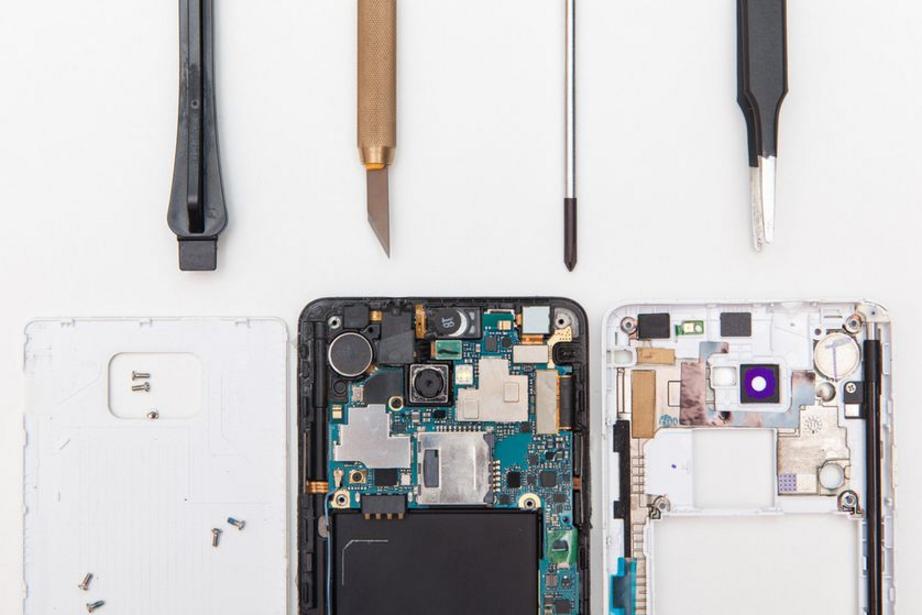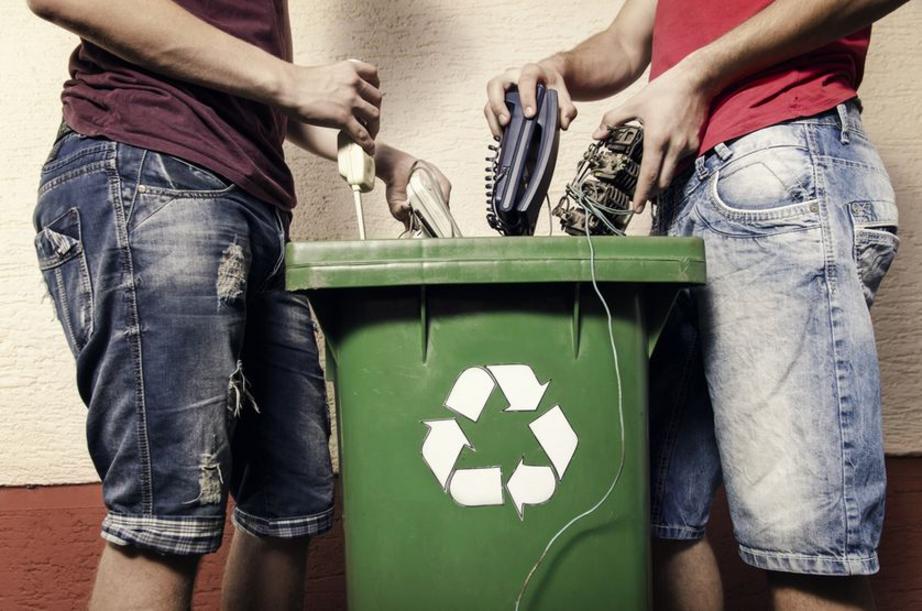Why is it so hard to find 'green' electronics?
Greenpeace reports what the world's leading consumer electronics companies are doing to address their environmental impacts.
When you buy a phone or computer, do you give much thought to the manufacturer's environmental impact or are you only concerned about performance and bells and whistles?
We rely on our electronic gadgets for work and pleasure, but because these products are so prolific, they have an incredible effect on the planet.
In an effort to study those impacts, Greenpeace creates an annual Guide to Greener Electronics, which analyzes what 17 of the world's top consumer electronics companies are doing to address their environmental impacts.
In the executive summary, Greenpeace explains:
There is no question that smartphones, PCs, and other computing devices have changed the world and our day-to-day lives in incredible ways. But behind this innovative 21st-century technology lie supply chain and manufacturing processes still reliant on 19th-century sources of energy, dangerous mining practices, hazardous chemicals, and poorly designed products that drive consumption of the Earth’s resources. This hidden reality stands in stark contrast to the forward-thinking, environmentally conscious image most IT companies project. Greenpeace launched the Rethink-IT campaign to challenge the IT sector to take responsibility for its rapidly growing footprint on the planet.
What the study found
 Few electronics are designed to be repaired or upgraded.
Few electronics are designed to be repaired or upgraded.
There were several major takeaways from the study. These include:
Planned obsolescence as a design feature. Any cellphone owner knows that few electronics are really designed to last. Greenpeace found that companies often change product design, making them difficult to repair or upgrade, thereby shortening their lifespan. They point out that Apple, Microsoft and Samsung are some of the worst offenders, while HP, Dell and Fairphone are exceptions, producing an increasing number of products that can be repaired or upgraded.
Supply chain driving demand for dirty energy. Somewhere around 70 to 80 percent of the carbon footprint during the lifespan of personal computing devices happens during manufacturing. Although several companies have made progress transitioning their offices and data centers to renewable energy, few have addressed dirty energy in their supply chains, the report found. Apple is the only company so far that has committed to 100 percent renewable power for its supply chain.
Lack of urgency, transparency in tackling global e-waste problem. What do you do with your old cellphones or computers? E-waste is expected to surpass more than 65 million metric tons this year globally. Some companies offer take-back programs, but there's little reporting on what is being collected or where it goes. According to the report, "Often 'recycled' e-waste ends up at informal recyclers and handled in ways that endanger worker health and the local environment."
A not-so-great report card
Looking to shop and want to purchase based on good environmental grades? There aren't many commendable marks in this list. In the 19th edition of the guide, Greenpeace evaluated companies on energy use, resource consumption and chemical elimination.
Energy: Reduction of greenhouse gases through efficiency and renewable energy
Resource consumption: Sustainable design and use of recycled materials
Chemicals: Elimination of hazardous chemicals from both the product itself and manufacturing
Here's how the companies fared:
- Fairphone: B
- Apple: B-
- Dell: C+
- HP: C+
- Lenovo: C-
- Microsoft: C-
- Acer: D+
- LG: D+
- Sony: D+
- Google: D+
- Huawei: D
- Asus: D
- Samsung: D-
- Amazon: F
- Oppo: F
- Vivo: F
- Xiaomi: F
For detailed information on how they earned those grades, download the full 2017 Company Report Card PDF.
What can you do?
 Whenever you replace an electronic, make sure you recycle your old one.
Whenever you replace an electronic, make sure you recycle your old one.
While we wait for companies to get more environmentally conscious, there are steps consumers can take. Greenpeace suggests:
- Choose well-made, long-lasting repairable products.
- Keep your devices as long as they still work.
- Repair, rather than replace products.
- Recycle old devices.
- Communicate with electronics manufacturers, and tell them you want products that keep the health of the planet in mind.

